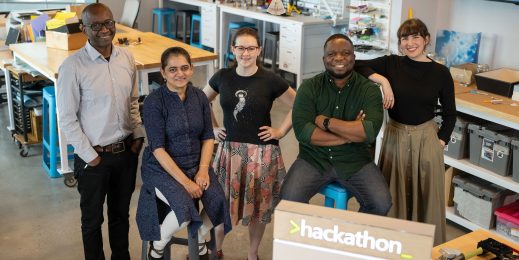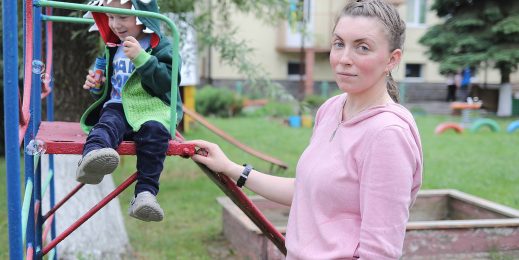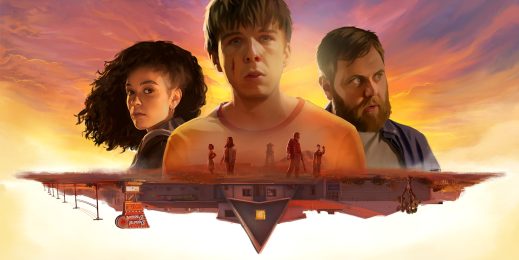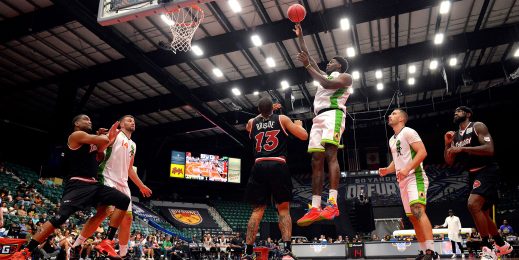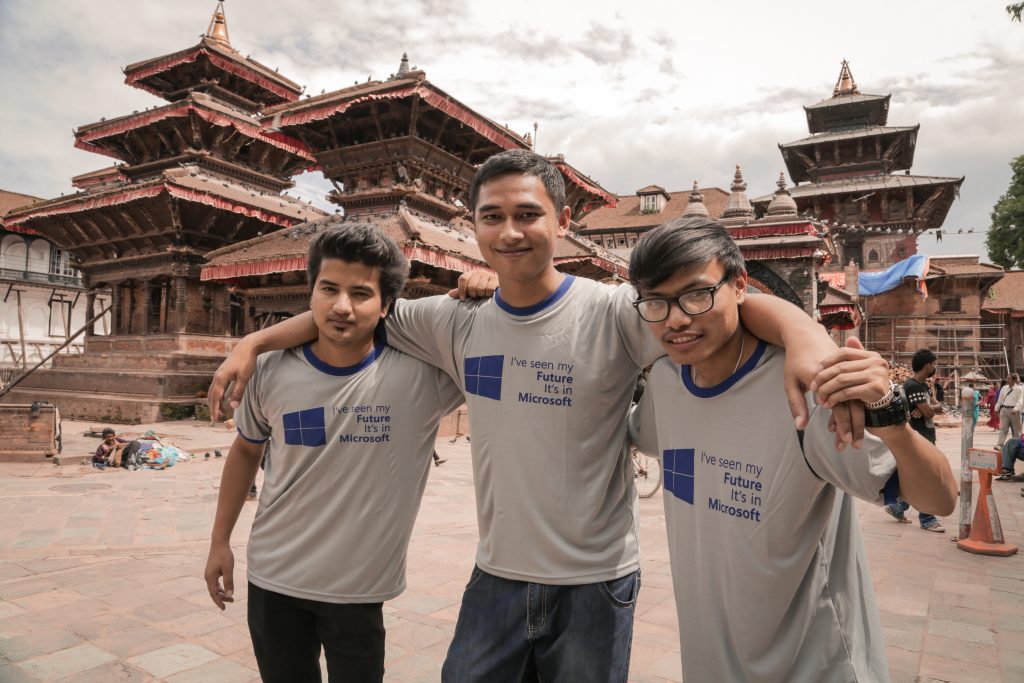
After tragedy, Imagine Cup team seeks ‘to show the world what Nepal can do’
When the morning of April 25 rolled around in Kathmandu, university students Sunil Lama and Amir GC still hadn’t been to bed. They’d just tag-teamed an all-nighter to polish “Defend Your Territory,” the video game they built for the Imagine Cup, Microsoft’s global student developer competition.
They wouldn’t get back to their beds for weeks.
Lama and GC were still perfecting pixels, designing weapons and refining maps at 11 a.m., when they called the third member of their Imagine Cup team to join them. Be right there, fellow Kantipur Engineering College student Sangam Shrestha told them.
But Shrestha was still in his apartment, hunched over his laptop and a Kinect sensor, at 11:56 a.m. when a 7.8-magnitude earthquake struck Nepal. It toppled buildings modern and ancient in Kathmandu, triggered an avalanche on Mount Everest and killed thousands across the country.
It also disrupted all cell phone and landline communications and left tens of thousands of Nepalese homeless. Like many in Kathmandu, the three members of Team Octavian slept in tents in the aftermath. Aftershocks constantly jolted the city, and everyone was afraid to stay inside for long.
After two days of struggling to connect with friends and family, the teammates finally managed to chat over Skype. Pushing forward with their project — and representing Nepal at the Imagine Cup World Finals — was never in doubt.
“Mother Nature might have slowed us down for a bit, but we couldn’t stop,” Lama says. “This is our chance to show the world what Nepal can do.” They’re now in Seattle, vying in the competition’s Games category for $50,000, a customized boot camp and a private meeting with Microsoft CEO Satya Nadella.
The team aims to offer a glimpse into the future of gaming. “Defend Your Territory” is a first-person shooter that transports players into the distant future. Decades of war and poaching have destroyed virtually all vegetation and animal life; barren deserts and wastelands cover the planet. But a sliver of hope exists: A team of scientists manage to send a cyborg back through time to fight poachers, protect endangered animals and ultimately save humankind.
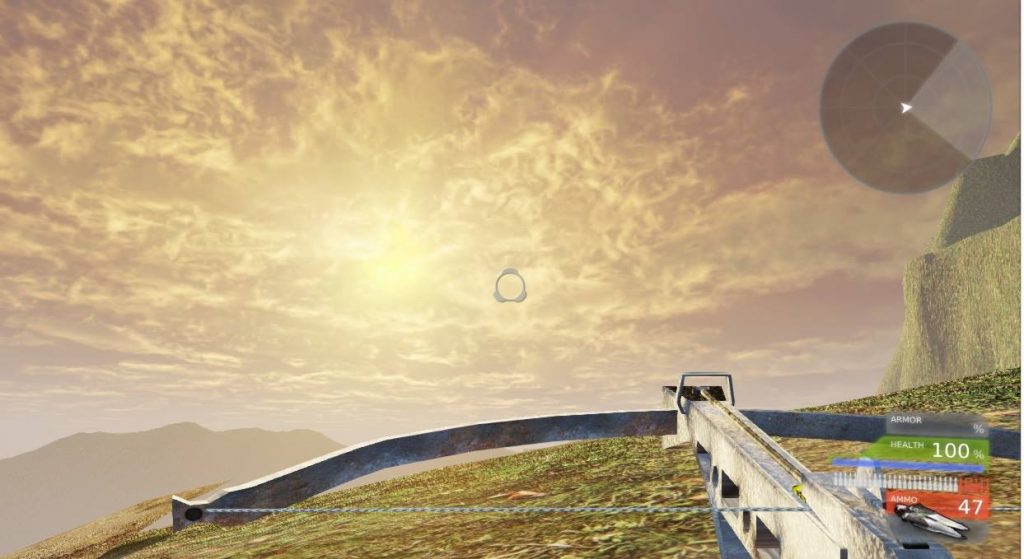
Shrestha says the idea came from a striking image he saw in The New York Times. “I was scanning the news and came across a photo of a northern white rhino. It was beautiful, but it was the last of its kind.” That resonated with the team; poaching has long been an issue in Nepal. Brainstorming sessions gave shape to the game’s storyline. Then they got coding.
Like every Imagine Cup team, Octavian built their project with a grab bag of Microsoft tech. Azure Machine Learning powers the artificial intelligence system behind friend and foe; Kinect offers an immersive, virtual reality-type gameplay; and Visual Studio Community 2013 — which Microsoft offers to student developers at no cost — is where they wrote their code.
The team continued to refine the game as power slowly returned to Nepal. The devastation from the earthquake was never far from their minds. But the teammates witnessed a few bright spots amidst the chaos and destruction: Neighbors helped neighbors, and strangers helped strangers. “People who never spoke to each other came together in tough times,” Shrestha says.
Team Octavian expects this week’s competition to be a life-changing experience. They’ve been eager to meet the brightest students in the world, learn about business plans and compete internationally.

Ultimately, the three dream of starting their own company and helping put Nepal on the gaming industry’s map. But first they want to bring the Imagine Cup to Nepal for the first time.
They know it will be hard. But the team is drawing inspiration from their namesake, the first emperor of Rome. “His strategic mind allowed him to gain victory after victory,” Shrestha says. “We want to win the Imagine Cup, so we thought it fitting to name our team Octavian.”
If they manage to pull it off, they hope it brings a small amount of relief to their country. And maybe a bit more, GC adds: “If we win this competition, maybe it will signify that the time has come for Nepalese to not only be known as brave people, but intelligent and advanced in the field of technology.”
Will they win it all? Find out by tuning into the Imagine Cup World Championship live webcast at noon PT on July 31 to watch Nadella crown the next Imagine Cup Champion.
Lead photo: Amir GC, Sangam Shrestha and Sunil Lama are representing Nepal at the Imagine Cup World Finals. (Credit: Matthew Pew)







